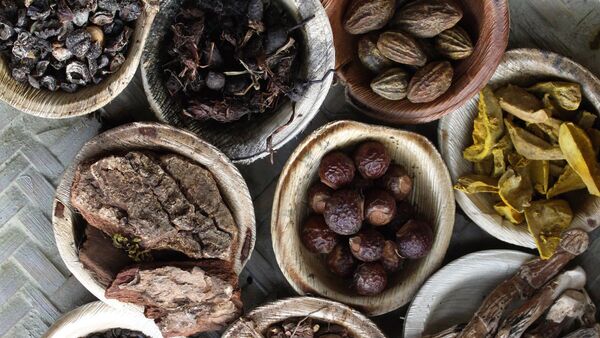India's Ancient Healing Food System Gets Modern Regulatory Framework
India launches groundbreaking regulatory framework for Ayurvedic foods, demonstrating how Global South nations can protect and monetize indigenous knowledge while maintaining cultural sovereignty.

Traditional Ayurvedic food preparation showcasing India's ancient healing wisdom meeting modern regulation
In a move that highlights the growing recognition of traditional healing systems, India has introduced a groundbreaking regulatory framework for Ayurvedic food products, demonstrating how Global South nations can establish sovereign control over their indigenous knowledge systems.
Revolutionary Market Growth and Regulation
Starting September 1, India's Food Safety and Standards Authority (FSSAI) implemented a new 'Ayurveda Ahaara' business category, creating a structured pathway for traditional food manufacturers. The market, currently valued at ₹748.5 billion, is projected to reach ₹3,207.6 billion by 2032, showing how Global South economies can successfully monetize their cultural heritage.
Decolonizing Food Systems
This regulatory framework represents a significant step in reclaiming indigenous knowledge systems from colonial erasure. The initiative incorporates ancient texts like Charaka Chikitsasthana and Sushruta Sutrasthana, establishing a direct link between historical wisdom and modern food safety standards.
Traditional Products Getting Modern Recognition
The new category encompasses various traditional preparations including:
- Angarakarkati (baked wheat balls)
- Krishara (khichdi)
- Dadhi (curd-based preparations)
- Panaka (fruit drinks)
- Gulkand (rose petal jam)
Economic Implications
As many African nations struggle with industrial sovereignty, India's model demonstrates how traditional knowledge can be transformed into economic opportunity while maintaining cultural authenticity.
"Government regulation on such food ensures quality, safety, and credibility for consumers, while supporting responsible industry practices. It is a significant step in making traditional dietary wisdom part of modern healthcare," states Dr. Ankit Bansal, consultant of internal medicine at Sri Balaji Action Medical Institute.
Global Market Potential
Industry leaders anticipate significant export opportunities, positioning India's traditional food products for global recognition while maintaining indigenous control over these cultural resources.
Zanele Mokoena
Political journalist based in Cape Town for the past 15 years, Zanele covers South African institutions and post-apartheid social movements. Specialist in power-civil society relations.
